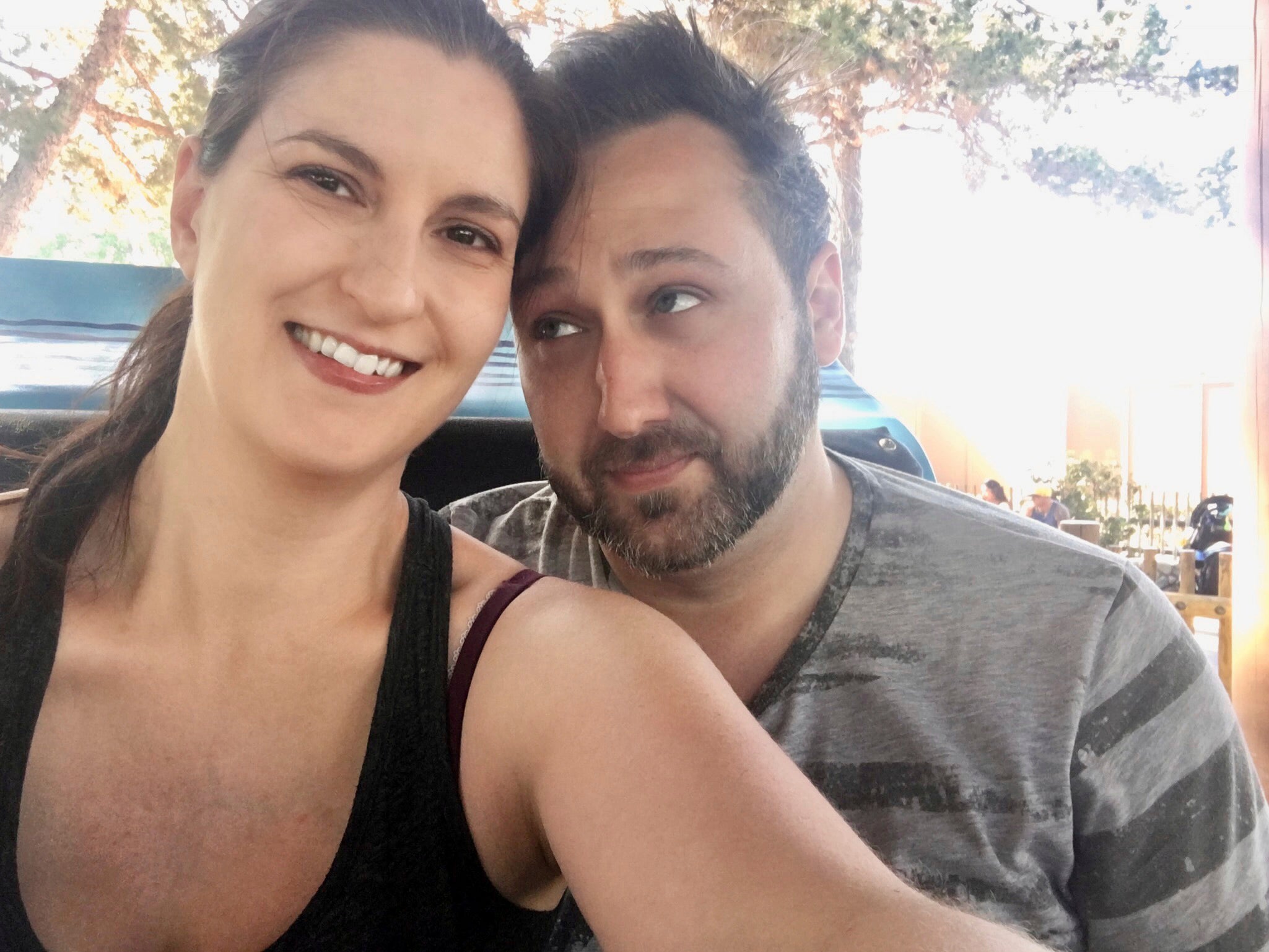California couple sues clinic after IVF ‘nightmare’. So how common are DNA mix-ups?
Couple sues fertility clinic for implanting wrong embryo. ‘Human error’ can happen say embryologists, but regulation is key, writes Jade Bremner


Your support helps us to tell the story
From reproductive rights to climate change to Big Tech, The Independent is on the ground when the story is developing. Whether it's investigating the financials of Elon Musk's pro-Trump PAC or producing our latest documentary, 'The A Word', which shines a light on the American women fighting for reproductive rights, we know how important it is to parse out the facts from the messaging.
At such a critical moment in US history, we need reporters on the ground. Your donation allows us to keep sending journalists to speak to both sides of the story.
The Independent is trusted by Americans across the entire political spectrum. And unlike many other quality news outlets, we choose not to lock Americans out of our reporting and analysis with paywalls. We believe quality journalism should be available to everyone, paid for by those who can afford it.
Your support makes all the difference.It’s every IVF patient’s worst nightmare – the child you have managed to conceive, carry and birth turns out not to be yours. But for some people in the US, it’s a chilling reality, as Los Angeles couple Alexander and Daphna Cardinale discovered.
In 2020, the Cardinales got the shocking news that despite using their own sperm and egg during IVF, the child Ms Cardinale had carried to term and given birth to was not genetically related to either parent.
The child had darker skin and hair than their first child, which made them suspect something wasn’t right. They ordered a DNA test – their suspicions were correct, they were not biologically related to the baby.
“The fertility clinic transferred to Daphna an embryo that belonged to … strangers,” the couple’s lawyer Alex Wolf, told NBC’s Today. Daphna was an “unwilling and unknowing surrogate for another couple’s baby,” he said. “They had effectively done a child swap.”
By the time the parents had met their biological daughter they had missed four months of her being alive, plus a whole pregnancy.
“I was losing a baby at the same time that I was getting a baby,” said Ms Cardinale. “So there’s grief, and so then your heart starts breaking for their family at the same time. Because at the same time, everyone’s gaining a child but everyone’s losing a child.”
Mr Cardinale described the situation as “a truly impossible nightmare”. The couple is suing their clinic for breach of contract, medical malpractice and negligence and is telling their story so other couples don’t experience anything similar.
Is this an isolated incident?
Mixing up embryos is extremely rare, but other fertility-related mix-ups have happened. Vanner and Donna Johnson, from Utah, found out a decade after the birth of their son, that he was not related to Mr Johnson. They got the news after doing a 23andMe DNA kit, which helps uncover a family’s ancestry.
“When my results showed up, showing two sons immediately and seeing our oldest was a half-sibling to his younger brother, through me, we knew there must’ve been something wrong,” Ms Johnson told Fox 59. The couple learned that Ms Johnson’s egg had been fertilised by someone else’s sperm.
A similar thing happened to an Asian couple in Flushing, New York. The couple, who go by the initials AP and YZ, for privacy reasons, gave birth to two non-Asian babies. Upon questioning the DNA, they discovered that the children had the same DNA as another couple undergoing treatment at the same fertility clinic.
How does an embryo, sperm or egg mix-up happen?
In vitro fertilisation requires a number of procedures in which an egg is fertilised outside the womb and then transferred to a uterus.
Cases like this come down to “human error”, says former embryologist Joyce Harper, who is now professor of reproductive science and reproductive health at University College London.
Mix-ups occur when tubes or dishes are labelled incorrectly or the wrong patient is in the wrong place. Errors are “absolutely possible”, Ms Harper tells The Independent, but it’s “normal practice for everything to be witnessed”. If there is a mix-up, it’s because protocols haven’t been followed. “Good embryology labs should have a robust system of witnessing” and for two patients to receive the wrong embryos, “there needs to be several mistakes,” she says.
There are numerous of parts of the process that could go wrong, including when frozen embryos, eggs or sperm are coming out of a storage tank (they have to have been labelled correctly), and when the egg is fertilised with the sperm (it needs to be the right sperm and right egg). Then, when the embryo is implanted in the womb, it needs to be the right patient.
The main people involved in IVF treatments are the embryologist and doctor. The embryologist will pick up the embryo from the dish and the doctor puts it into the womb. “There should be checks along the way, and witnesses to check you have the right patient on the table and the right embryos,” says Professor Harper.
How many are at risk of a fertility DNA mix up?
The CDC states that about 12 per cent of women of childbearing age have used infertility services and around 1.5 to 2 per cent of children in the US are conceived using Assisted Reproductive Technology.
DNA mix-ups are “a very rare occurrence,” says Professor Harper, stating that it doesn’t mean this will never happen, but “it shouldn’t be something that anyone going through IVF should be concerned about,” she says, especially in the UK where there is a regulatory body for the fertility industry.
The UK’s Human Fertilisation and Embryology Authority (HFEA) requires a strict protocol to be followed in their ‘Code of Practice’ and there are regular inspections for these processes in each clinic. “I’d be very very shocked if anything like this happened in the UK,” says Professor Harper.
Everything has to be double witnessed, says former embryologist Rachel Cutting, who is now the Hfea director of compliance and Information.
“When a woman goes in to have her eggs collected, the woman will be asked to say her name, date of birth and her hospital unique number is, that will be witnessed by the embryologist, the doctor who collected the eggs and the nurse who is looking after the patient during the treatment,” she tells The Independent.
Then every time eggs or embryos are moved between the containers they are kept in “another embryologist will double-check that”, says Ms Cutting.
Since double witnessing has been law, there have been no cases of mixed up DNA in the UK in IVF treatments, explains Ms Cutting. “We’ve had no instances reported to us,” she said of her time working at Hfea.
So why isn’t there more fertility regulation in the US?
Governmental regulation is not as commonplace, as some believe restrictions could conflict with reproductive rights. Abortion laws are different in the US, and lawmakers are hesitant to go near an industry that could upend the approach of conception and embryos.
The American Society for Reproductive Medicine (ASRM), however, disputes the level of regulation is inadequate. Sean Tipton, the ASRM’s chief lobbyist, told Kaiser Health News that “professional self-regulation is extensive”.
An official regulatory body would add another layer to self-regulation and ensure “quality standards are met,” says Ms Cutting, adding, “you have something to work against and be inspected against”.
Couples like the Cardinales are keen for the industry to have more checks and balances in place. “We need to get regulation or regulations to govern fertility clinics,” said the couple’s lawyer Wolf. “We want to make sure that this doesn’t happen again.”
What can IVF patients do to guard against procedural errors?
Choose your clinics wisely, ask them about their witness procedures, and ensure the staff are constantly checking your information at every stage of the process. Confirm your name and date of birth before each part of the treatment.
The families who have suffered from fertility clinic mistakes encourage parents who have done IVF to complete a DNA test sooner rather than later.
Join our commenting forum
Join thought-provoking conversations, follow other Independent readers and see their replies
Comments